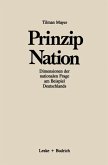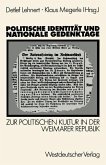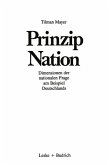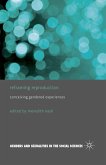This book contributes to the theoretical and methodological discussion about how the diverging experiences of generations and their historical memories play a role in the process of national identity formation. Drawing from narratives gathered within the Ukrainian minority in northern Poland and centered on the collective trauma of Action Vistula, where in 1947 about 140,000 Ukrainians were resettled from south-eastern Poland and relocated to the north-western areas, this study shows that three generations vary considerably with regard to their understandings of home, integration, history and religion. Thus, generational differences are an essential element in the analysis and understanding of social and political change. The findings of this study provide a contribution to debates about the process based nature of national identity, the role of trauma in creating generational consciousness and how generations should be conceptualized.
Bitte wählen Sie Ihr Anliegen aus.
Rechnungen
Retourenschein anfordern
Bestellstatus
Storno








